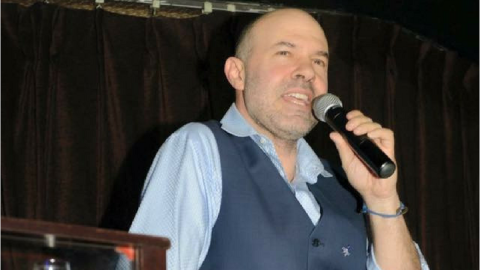 In my role as co-founder of AliveAndKickn, people ask me for my opinion all the time. Topics range from how to manage pain, how to navigate post-cancer survivorship, to whether or not the U.S. will ever become a world soccer powerhouse. (No, I’m not kidding.) I’m not big on giving advice, but I try to answer as honestly as I can.
In my role as co-founder of AliveAndKickn, people ask me for my opinion all the time. Topics range from how to manage pain, how to navigate post-cancer survivorship, to whether or not the U.S. will ever become a world soccer powerhouse. (No, I’m not kidding.) I’m not big on giving advice, but I try to answer as honestly as I can.
First, the U.S. is already a world soccer powerhouse. Being in the world’s top 20 isn’t bad. We’re just spoiled and think that if we don’t win the World Cup, we’re not a powerhouse.
Second, regarding pain management, it’s a tough one. I’ve been fortunate that most of my pain actually comes from my soccer days, not from living through multiple cancers related to Lynch syndrome. The arthritis in my knees is pretty bad. (Sometimes I’m not sure which is worse, the pain in my knees or the fact that I sound like my mother...). I do a lot of stationary bike riding and stretching, which help. I still play soccer, but as frequently as previously, and it takes longer to recover. I let others shovel snow and cut the lawn now. I don’t like to medicate during the day except for occasional headaches.
Some people need more relief from pain, and as such, they should consult an appropriate expert with their healthcare provider’s help. Some find acupuncture effective and others get relief from medical marijuana. Regardless, you should look for something and someone that is sustainable – and partner with your healthcare provider as you do this, so they can help if problems arise. Quick fixes are just that. If it’s long-term relief you seek, plan ahead.
Speaking of planning, after you’re diagnosed with cancer, you need to plan. As a soccer player and coach, I compare my cancer care (and life in general) to a soccer game. You plan ahead, put pieces in place – but once the whistle starts the game, it’s a process of continuous motion. You move into positions, sometimes sprinting at full speed, sometimes jogging, and sometimes walking. You communicate with your teammates, support each other, and sometimes make individual decisions that affect the game one way or another. Unlike baseball or American football, soccer doesn’t stop. You need to adjust in real-time, just like in life.
So when you get your cancer diagnosis, try not to panic. Think. What do I know? What don’t I know? What is opinion and what is fact? Every person you talk to will give you the name of the best surgeon/oncologist/hospital/restaurant, so sift through the noise and start with someone you know and trust. Get a second opinion. Any good healthcare provider will not get insulted if you go for a second opinion. If you’re not comfortable with choice 1 or choice 2, look at choices 3 and 4. Eventually you need to make a decision, but at least you’ve explored your options.
Once you’ve decided, and hopefully your cancer is smaller/removed/under control, you’re going to need to implement a plan for afterwards. This may be chemotherapy, radiation, or in my case, a series of diagnostic testing. Again, talk to someone who is knowledgeable AND understands you. Ask questions, including the cost. Have someone else with you to take notes – if you’re like me, you will forget half of what you’re told.
I talked with a genetic counselor who told me what my genetic test results meant and the implications for different types of cancer in the future. I started seeing an oncologist, who referred me to a high-risk oncologist, who became my “coach.” She helped me make my plan, which included not only colonoscopy (I had colon cancer twice) but also endoscopy, cystoscopy, CT scans, and mammograms. I’ve been fortunate that in each of my three tumors, they’ve been caught and removed before they could spread. If a harsh medication is needed, ask the side effects and the risks. Quality of life matters. Keep up your nutrition, as it’s just as important as the medication. Let others help, but don’t get angry with others if they don’t know what to say or if they say something inappropriate. It will happen.
As we wrap up National Colorectal Cancer Awareness Month, I can’t help but reflect back. It’s been a quiet ten years for me since I was first diagnosed with colon cancer, but it had been a quiet ten years prior to that. Hopefully when (if) another tumor starts, it will be caught early once again. I have a team looking out for me, and hopefully you do too.



